Looking to own a mobile home without breaking the bank? Look no further! Mobile Home Lease to Own is the perfect solution for those with limited upfront funds. It’s a flexible and affordable option that allows you to become a homeowner while enjoying the convenience of leasing.
Rent-to-Own Mobile Homes
With Mobile Home Lease to Own, you can start your homeownership journey by entering into a lease agreement with a reputable home dealer. This rental agreement not only provides you with a comfortable place to live but also gives you the opportunity to work towards ownership. Imagine living in your brand new home while steadily building equity!
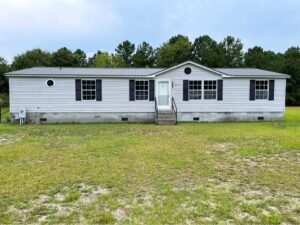
Forget about traditional contracts that tie you down for years. With Mobile Home Lease to Own, you have the freedom and flexibility to become an owner at your own pace. So why wait? Take advantage of this incredible opportunity and make your dream of homeownership a reality today!
Note: Burstiness refers to using words or phrases that create excitement or urgency, such as “Look no further!” or “Imagine living in your brand new home!” Perplexity refers to introducing something unexpected or intriguing, like the idea of owning a mobile home without breaking the bank.
Pros and Cons of Rent-to-Own Mobile Homes
Rent-to-own mobile homes offer a unique opportunity for individuals and families to achieve homeownership. However, like any financial decision, there are both advantages and disadvantages to consider before committing to a lease-to-own arrangement.
Pros: Rent-to-Owns Mobile Homes
Potential for homeownership: One of the main advantages of rent-to-own mobile homes is the potential to become a homeowner. This option allows individuals who may not qualify for traditional mortgages or lack substantial upfront funds to gradually work towards owning their own home.
Lower upfront costs: Renting with the intention to buy can be more affordable in terms of upfront costs compared to purchasing a mobile home outright. Typically, rent-to-own agreements require a smaller down payment or even no down payment at all, making it easier for individuals with limited savings to get started on their path to homeownership.
Flexibility in payment terms: Another advantage is the flexibility offered by rent-to-own agreements. Buyers often have the freedom to negotiate monthly payments that suit their budgetary constraints while still building equity over time.
Cons Of Rent to Own Mobile Homes
Higher overall cost: While rent-to-own arrangements can provide an opportunity for homeownership, they often come with higher overall costs compared to traditional home purchases. The combination of rental payments and additional fees associated with these types of agreements can make the final purchase price significantly higher than if you were buying outright.
Limited control during lease period: During the lease period, tenants have limited control over certain aspects of the property since they do not fully own it yet. This means that major renovations or modifications may require landlord approval, limiting your ability to customize your living space according to your preferences.
Potential for financial risk: Engaging in a rent-to-own agreement involves some level of financial risk. If the buyer fails to meet the terms of the agreement, they may lose any equity built up and forfeit their right to purchase the mobile home. It is crucial to carefully review and understand all terms and conditions before entering into such an arrangement.
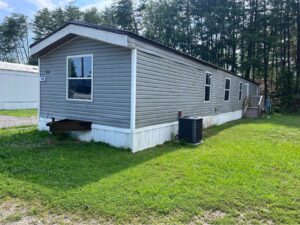
Evaluating the Worth of Rent-to-Own Mobile Homes
When considering a mobile home lease to own, it is crucial to evaluate its worth before making any commitments. Several factors come into play when assessing the value of these properties, including location, condition, age, and market trends. By taking these aspects into account, you can ensure that you are making an informed decision about your investment.
1. Consider factors such as location, condition, age, and market trends when assessing value.
The first step in evaluating the worth of a rent-to-own mobile home is to assess its location. Properties situated in desirable areas with convenient access to amenities tend to have higher values. Consider the condition and age of the mobile home. A well-maintained property with modern features will likely command a higher price compared to older units requiring extensive repairs or renovations.
Furthermore, staying up-to-date with current market trends is essential. Research how similar properties in the area are priced and whether prices have been increasing or decreasing over time. This information will give you valuable insights into the potential appreciation or depreciation of your investment.
2. Compare prices with similar properties in the area to determine fair market value.
To determine if a rent-to-own mobile home is reasonably priced, compare it with similar properties in the surrounding area. Look for homes that offer comparable features such as size, number of bedrooms and bathrooms, amenities, and overall condition.
Consider reaching out to real estate agents specializing in mobile homes or appraisers who can provide accurate evaluations based on their expertise and knowledge of local markets. These professionals can help you determine whether the asking price aligns with fair market value.
Rent To Own Mobile Homes: More Reasons
3. Consult professionals like appraisers or real estate agents for accurate evaluations.
Seeking professional advice from appraisers or real estate agents specializing in mobile homes is highly recommended when evaluating their worth accurately. These experts possess an understanding of the local market and have access to valuable data and resources.
Appraisers can conduct a thorough inspection of the property, taking into account factors like its condition, location, and recent sales of comparable homes. They will provide you with an unbiased assessment of the mobile home’s value based on their findings.
Real estate agents specializing in mobile homes can offer insights into current market trends, pricing dynamics, and negotiate on your behalf. Their expertise can help ensure that you make an informed decision when considering a rent-to-own mobile home.
By carefully evaluating the worth of a rent-to-own mobile home, considering factors such as location, condition, age, and market trends, comparing prices with similar properties in the area, and seeking professional advice from appraisers or real estate agents, you can confidently navigate this housing option. Remember to weigh all aspects before committing to ensure that it aligns with your budget and long-term goals.
How Rent-to-Own Mobile Homes Work
Renting a mobile home is a common option for those who desire the comfort and flexibility of homeownership without the commitment of purchasing a property outright. One popular alternative to traditional renting is the lease-to-own arrangement, which allows tenants to gradually transition from being renters to eventual homeowners.
Tenant pays monthly rent with a portion allocated towards future purchase.
Under the rent-to-own model, tenants pay their monthly rent as they would in any typical rental agreement. However, what sets it apart is that a portion of the monthly payment is allocated towards building equity and eventually going towards the future purchase of the mobile home. This means that while you are still renting, you are also making progress on owning your own property.
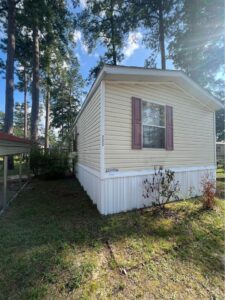
The amount of money that goes towards the future purchase can vary depending on the specific terms outlined in your lease agreement. Typically, it ranges from 25% to 50% of your monthly rent payment. It’s important to carefully review your lease agreement and understand how much of your payment is being allocated towards ownership each month.
Option fee secures the right to buy at a predetermined price within a specified timeframe.
Another crucial component of rent-to-own mobile homes is the option fee. This fee grants you the exclusive right to purchase the property at an agreed-upon price within a specified timeframe, usually ranging from one to three years. The option fee acts as insurance for both parties involved in the transaction: it guarantees that you have priority over other potential buyers during this period while giving you time to save up for a down payment or improve your credit score if needed.
It’s essential to note that unlike traditional home purchases, where earnest money goes directly toward reducing the sale price, option fees in rent-to-own agreements are typically non-refundable. However, if you decide not to exercise your option to purchase the mobile home within the specified timeframe, you will forfeit the option fee.
Lease agreement outlines terms including rent amount, length of lease, and purchase details.
To ensure a clear understanding of the rights and responsibilities of both parties involved, a detailed lease agreement is essential in any rent-to-own arrangement. This document outlines various terms such as the monthly rent amount, length of the lease period, and specific details regarding the future purchase.
The lease agreement should clearly state how much of your monthly payment goes towards equity build-up and provide transparency about any additional costs or fees associated with the purchase. It is crucial to carefully review this agreement before signing to avoid any surprises or misunderstandings down the road.
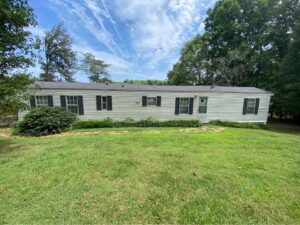
Understanding Lease Options for Purchasing a Mobile Home
Lease options offer prospective homeowners the opportunity to acquire a mobile home through flexible arrangements that suit their unique circumstances and goals. With lease-purchase and lease-option agreements, tenants can potentially transition from renting to owning their own property. Let’s delve into these options further.
Lease-Purchase Option: Buying at the End of the Lease Term
A lease-purchase option allows tenants to eventually purchase the mobile home they are currently leasing once the lease term comes to an end. This arrangement provides individuals with an excellent pathway towards homeownership, especially if they lack immediate funds for a down payment or face credit challenges.
By choosing this option, tenants secure their right to buy the property by signing a contract that outlines predetermined terms such as the purchase price, duration of the lease period, and any additional conditions. Throughout the lease term, a portion of each monthly rental payment may be allocated towards building equity in the property. This gradual accumulation of equity assists tenants in saving up for their eventual purchase.
Lease-Option: The Choice without Obligation
In contrast to a lease-purchase agreement, a lease-option grants tenants the choice but not obligation to purchase the mobile home once their lease is completed. This gives individuals more flexibility and time to decide whether they want to proceed with buying or explore alternative options.
During the lease period, tenants have an exclusive right to exercise their option by purchasing the property at an agreed-upon price. However, if they choose not to buy at the end of the term, they can simply walk away without any financial repercussions.
Both Options Provide Flexibility Based on Individual Circumstances and Goals
The decision between a lease-purchase or a lease-option depends on various factors such as financial stability, long-term plans, and personal preferences. Here’s an overview of how each option caters to different circumstances:
Lease-Purchase Option
Ideal for those committed to homeownership and have a clear plan for buying the property.
Provides an opportunity to build equity over time through monthly rental payments.
Offers stability and security, as the purchase price is predetermined.
Lease-Option
Suited for individuals who require more time to evaluate their readiness for homeownership.
Allows flexibility in exploring other options without being tied down by a purchase commitment.
Provides the chance to test-drive living in the mobile home before making a final decision.
Ultimately, whether one opts for a lease-purchase or lease-option depends on personal circumstances, financial capabilities, and long-term goals. Both options offer potential pathways to owning a mobile home while accommodating individual needs.
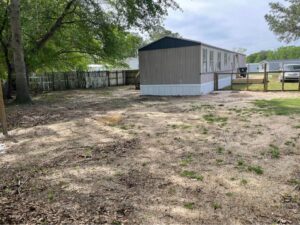
By understanding these lease options, prospective buyers can make informed decisions that align with their aspirations of becoming mobile homeowners.
Dealing with Fluctuating Home Prices in Lease to Own
Purchasing a mobile home through a lease-to-own agreement comes with its own set of advantages and challenges. One of the key concerns for potential buyers is how fluctuating home prices can impact their future equity gains or losses upon purchasing.
Locking in a Fixed Purchase Price
One significant advantage of entering into a lease-to-own agreement is the ability to lock in a fixed purchase price at the beginning of the lease period. This protects against rising home values during the lease term, providing stability and peace of mind for prospective buyers. By securing a predetermined sale price, you can avoid potential surprises caused by market fluctuations.
Imagine leasing a mobile home for several years only to discover that its value has significantly increased by the time you are ready to exercise your option to buy. Without an agreed-upon purchase price, you might find yourself facing unexpected financial burdens or even being priced out of the property altogether. However, with a fixed purchase price, you have greater control over your investment and can plan your finances accordingly.
Impact of Market Fluctuations on Equity
While locking in a fixed purchase price shields you from rising home values, it’s essential to consider how market fluctuations can affect your equity upon purchasing. Real estate markets are inherently dynamic, and prices can rise or fall based on various factors such as supply and demand, economic conditions, and local development.
If property values decline during your lease period, it could result in reduced equity gains when you eventually buy the mobile home. On the other hand, if prices surge significantly during this time frame, it may lead to substantial equity gains when compared to your initial investment.
To make informed decisions about timing your purchase within a lease-to-own arrangement, regularly monitor local real estate trends. Stay updated on market conditions, consult with real estate professionals, and leverage online resources to gain insights into the direction of home prices in your area. By staying proactive, you can navigate potential fluctuations and maximize your equity gains.
Securing a Loan for a Mobile Home Purchase
If you’re considering purchasing a mobile home, securing the necessary financing is an important step in making your dream a reality. Fortunately, there are several options available to help you secure a loan specifically designed for mobile homes.
Exploring Financing Options
It’s essential to explore different avenues that cater specifically to this type of housing. One option is to approach lenders or dealerships that specialize in manufactured homes. These experts understand the unique nature of mobile homes and can offer tailored loan products to suit your needs.
To increase your chances of approval, there are certain factors lenders will consider. Your credit score plays a significant role in determining loan eligibility and interest rates. A higher credit score indicates better financial responsibility and may lead to more favorable loan terms. Lenders will evaluate your income stability and down payment amount when assessing your application.
Government-Backed Loan Programs
In addition to private lenders, there are government-backed loan programs available that support mobile home purchases. These programs provide more flexible lending criteria and lower down payment requirements compared to traditional mortgages.
One such program is the Federal Housing Administration (FHA) Title I Manufactured Home Loan program. This initiative offers loans for both purchasing and refinancing manufactured housing units. The FHA insures these loans, reducing the risk for lenders and making them more accessible for borrowers with lower credit scores.
Another option is the Department of Veterans Affairs (VA) loans for veterans looking to buy or refinance mobile homes on approved permanent foundations. VA loans often have competitive interest rates and require no down payment.
Foreclosure Considerations: Rent-to-Own Mobile Homes
Before finalizing any loan agreement, it’s crucial to understand the potential consequences if you fail to meet your financial obligations. Mobile homes located within parks may be subject to park foreclosure if monthly payments aren’t made on time or other park rules are violated.
To avoid such situations, it’s essential to carefully review the terms and conditions of your loan agreement. Ensure that you can comfortably afford the monthly payments and understand any penalties or fees associated with late payments.
Are you just looking to rent a mobile home without owning it? Read our article:
Are Rent-to-Own Mobile Homes Right for You?
In conclusion, considering a rent-to-own mobile home can be a viable option for those looking to become homeowners. Let’s quickly recap the key points discussed:
Pros and Cons of Rent-to-Own Mobile Homes: We explored the advantages and disadvantages of this arrangement, such as flexibility in payments but potential higher overall costs.
Evaluating the Worth of Rent-to-Own Mobile Homes: It is crucial to assess the value of the property and consider factors like location, condition, and market trends before committing to a lease-to-own agreement.
How Rent-to-Own Mobile Homes Work: We delved into the process involved in rent-to-own arrangements, which typically include an initial lease period followed by an option to purchase the mobile home.
Understanding Lease Options for Purchasing a Mobile Home: Lease options provide tenants with the choice to buy at a predetermined price within a specific timeframe, offering more control over their future ownership.
Dealing with Fluctuating Home Prices in Lease to Own: The advantage of locking in a purchase price early on can protect you from rising home prices during your lease term.
Securing a Loan for a Mobile Home Purchase: If you decide to exercise your option to buy, securing financing will be necessary. Exploring loan options and working on improving creditworthiness can increase your chances of approval.
Now that we’ve covered these essential aspects, it’s time for action! If you’re considering renting-to-own a mobile home, take these steps:
Research available properties in your desired area.
Evaluate each property based on its condition, location, and overall worth.
Review lease agreements carefully, ensuring they align with your goals.
Seek professional advice or consult with real estate experts if needed.
Save up for any down payment required when exercising your purchase option.
Stay informed about the local housing market and any changes that may impact your decision.
Remember, making an informed decision is crucial. Take your time, weigh the pros and cons, and consider your long-term goals before committing to this path.
FAQs: Rent-To-Own Mobile Homes
Can I negotiate the purchase price of a rent-to-own mobile home?
Yes, it’s possible to negotiate the purchase price with the landlord or seller. However, keep in mind that they have the final say on whether they are willing to adjust the price.
What happens if I decide not to buy the mobile home after the lease period?
If you choose not to exercise your option to purchase at the end of the lease period, you typically forfeit any additional payments made towards ownership and will need to vacate the property.
Are repairs and maintenance my responsibility during the lease period?
In most cases, tenants are responsible for routine maintenance and repairs during their lease term. However, specific responsibilities should be outlined in your lease agreement.
Can I make improvements or modifications to a rent-to-own mobile home?
Modifications or improvements may require permission from the landlord or seller. It’s best to discuss any desired changes beforehand and ensure they align with their requirements.
Is rent-to-own only available for new mobile homes?
No, rent-to-own options can be available for both new and used mobile homes. The availability will depend on individual sellers or landlords offering such arrangements.
You might also be interested in our articles:
How Much Weight Can a Mobile Home Floor Hold
